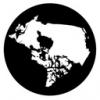| Online: | |
| Visits: | |
| Stories: |

| Story Views | |
| Now: | |
| Last Hour: | |
| Last 24 Hours: | |
| Total: | |
The federal elections: beyond the ballot box

The 2015 federal elections are the longest and most expensive propaganda effort in Canadian electoral history, ensuring those with the deepest pockets are the most visible. Yet virtually none of this energy and money translates into democracy beyond election day. That is by design.
Canada’s political system is a limited and hierarchical form of democracy that comes up for air every four years rather than being part of our daily lives. This electoral system was designed to instill passivity within the population, and there is a historical basis to this claim.
During a speech in 1870 as Canada was being founded, British colonial official T.L. Wood said that “opinions may be divided in many other matters, the votes of a party may be split on many points, but in the hands of the masses the substantial class will be heavily and unmeasurably taxed to suit the views of those who have nothing to lose and all to gain by any contemplated movement.”
This maxim holds true with remarkable consistency today. Genuine democracy has always been feared by those with political and economic power.
Yet the Canadian political system also allows a reasonable degree of freedom, despite the state’s best efforts to survey, regiment, enforce laws upon, spy upon, follow and act violently toward those who dissent. This limited freedom can be used to foster direct democracy and direct action, building a “contemplated movement” capable of challenging and even overpowering the substantial class.
Passivity by design
Canada’s electoral democracy is useful for those with political and economic power as it offers a limited form of democracy and political diversity while effectively narrowing the realm of possibility.
Noam Chomsky summarizes this nicely in writing that “the smart way to keep people passive and obedient is to strictly limit the spectrum of acceptable opinion, but allow very lively debate within that spectrum. That gives people the sense that there's free thinking going on, while all the time the presuppositions of the system are being reinforced by the limits put on the range of the debate.”
With the exception of highly active party members, most people are excluded from making political decisions and have no direct influence over political parties or parliament. A small group of political and economic elites govern daily political affairs while parliament and its various branches are controlled by a small number of technocrats, lawyers, powerful stakeholders and specialists.
What information people do receive is filtered through corporate media outlets—Canada has among the most concentrated private media ownership structures among developed countries, with a handful of major corporations like Rogers and Quebecor controlling all major print and broadcast media outlets.
By the time elections roll around, the parties have largely decided upon candidates, party platforms, policy positions and strategies. Apart from the occasional party convention, all of this is implemented from the party headquarters by a group of strategists and public relations specialists rather than the people.
A government is deemed to have governed effectively if it can impose its vision in a manner that does not rock the boat too heavily one way or another. The process repeats itself again after four years.
None of this allows for substantive participation from the mass of people, precisely because doing so could foster a contemplated movement that would heavily and unmeasurably tax the substantial class.
Direct democracy and direct action is appealing in this respect because it allows us to break from this passivity to foster genuine democracy in our workplaces, communities and homes. It offers precisely the hope of developing a contemplated movement that can challenge those in power.
Direct democracy and direct action
“The way we see it, direct democracy should be experienced, every moment of every day,” stated the CLASSÉ manifesto during the Québec student strike of 2012. “Our own voices ought to be heard in assemblies in schools, at work, in our neighbourhoods. Our concept of democracy places the people in permanent charge of politics, and by ‘the people’ we mean those of us at the base of the pyramid – the foundation of political legitimacy.”
Participating in the Québec student strike convinced me that mass direct democracy is not only possible but desirable. Direct democracy, “nonhirearchical decision-making” or grassroots democracy is an approach which allows people to participate directly in decision-making without hierarchies. Direct action is a way of actively participating through strikes and other actions to achieve goals, rather than delegating work to negotiators or representatives.
People can come together in their communities, schools and workplaces to decide and act upon matters collectively. “This necessitates creating concrete alternatives and strengthening relations outside the purview of the state’s institutions and its matrices of power and control,” writes Harsha Walia in Undoing Border Imperialism. “Such alternatives unsettle the state and capitalism by functioning outside their reach.”
A major task following the 2015 elections is to foster direct democracy and direct action. This has the ability to foster the kind of “contemplated movement” that T.L. Wood and successors are so fearful of, precisely because “in the hands of the masses the substantial class will be heavily and unmeasurably taxed to suit the views of those who have nothing to lose and all to gain.”
Matthew Brett (@mattbrett_1984) is an anarchist organizer based in Winnipeg, Treaty 1 territory. He is a member of the Canadian Dimension magazine editorial collective.
Source: http://www.mediacoop.ca/fr/blog/matthew-brett/34025



